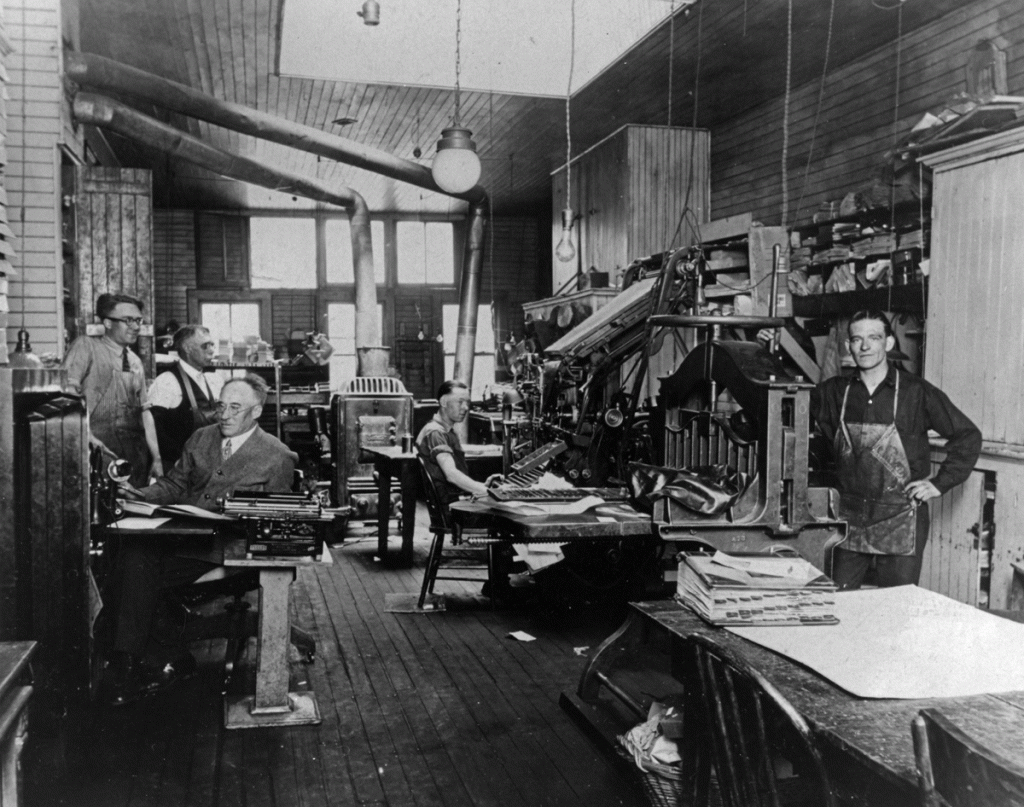This is the second article in a series on Prohibition in Park City.
“Park City is ‘dry,’ and thank God for it,” announced the Park Record in their first issue after Utah began its alcohol prohibition law on August 1, 1917.[1] They were even ready to declare prohibition “a gratifying success,” after just one month, telling readers that there had been “a decrease in court business and increase in home happiness, the complete annihilation of drunkenness, and the evidence of better business….”[2] How they measured these instances they do not say.
On September 6, the City Council passed an ordinance drafted by the state, which laid the groundwork for enforcing prohibition.[3] At the end of the month, the Park Record shared a blurb from the Eureka Reporter that noted Henry Spriggs, the former saloon man, said “Park City hasn’t been hurt a bit by prohibition.”[4] The Park Record again spouted the benefits that Park City was seeing from Prohibition a few weeks later, saying “it is a better and cleaner town morally; happiness reigns in hundreds of homes where misery and fear were formerly rampant; wives and children are better clothed; business is better…,” etc.[5] Once again, they do not say how they came to these conclusions.
It seems the Park Record was really trying to sell Prohibition, for many in town were not enjoying it at all – nor was business better. The paper reported one of the first raids of a business in November of 1917, noting in the story that “it is not difficult to obtain liquor” at most of the pool halls and soft drink parlors.[6] By Christmas, the Park Record expressed some frustration that their previous reports on Park City’s dryness were untrue, running a piece titled “Stop Bootlegging.”[7] Despite previous assurances that business in Park City was better with Prohibition (as people spent less money on booze, therefore having more to spend elsewhere), the Park Record reported in January 1918 that “since prohibition went into effect, there has been a great falling off in revenue, and a deficit resulted every month” for the city.[8]

Park City Historical Society & Museum, Thomas F. Hansen Collection
Interestingly, the paper changed their tune toward having all alcohol destroyed and the town completely dry when booze acted as “medicine” of sorts for people suffering from the Spanish Flu epidemic, saying to “use it, and use it freely,” and noting that it could be life-saving for the ill. They made sure to add they were still law-abiding and in staunch support of Prohibition.[9]
In April 1919, a bit of worry came through in the Park Record’s reporting on Prohibition. They noted that despite the reduced revenue of the town, it is “not sufficient reason for ‘cold feet,’” regarding prohibition or its enforcement.[10]
But the sentiment of most of the town might have best been summed up in the Park Record’s April 1922 “Stroller Notices,” a series of short remarks published each issue. In it they quipped “Park City might take more kindly to prohibition if she ever tried it.”[11] In other words, most of Park City was not going dry – they continued to run booze and drink it.
The paper frustratedly reported in August 1920 that “If anyone supposed that the placing of prohibition law on even the federal statutes, was going to cure the whole liquor trouble, they were due to a sad awakening; for it must be remembered that crime, and particularly those forms of it which prey upon the weaknesses of the [human] race, is hard to down.”[12]
Next week, read about the crimes of circumventing prohibition.
The Park City Museum will host a Zoom lecture by author and historian Garrett Peck titled “Prohibition: Thirteen Awful Years of the Noble Experiment” tonight, May 4, from 5-6 p.m. Register here.
[1] “A Wild Night.” Park Record, August 3, 1917.
[2] “General Items.” Park Record, August 31, 1917.
[3] “General Items.” Park Record, September 7, 1917.
[4] “Visits Old Stamping Ground.” Park Record, September 28, 1917.
[5] [Untitled]. Park Record, October 12, 1917.
[6] “General Items.” Park Record, November 23, 1917.
[7] “Stop Bootlegging.” Park Record, December 28, 1917.
[8] “General Items.” Park Record, January 11, 1918.
[9] “Local News” Park Record, November 29, 1918.
[10] “General Items.” Park Record, April 18, 1919.
[11] “The Stroller Notices.” Park Record, April 21, 1922.
[12] “General Items.” Park Record, August 13, 1920.